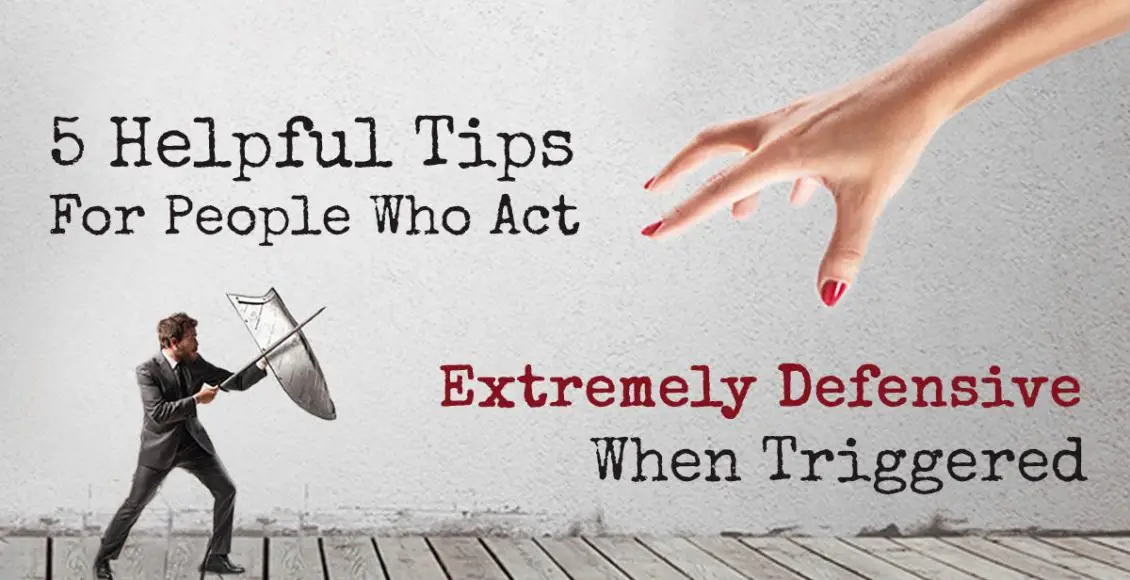Do you find yourself acting too defensively when someone goes a bit too far for your taste?
If the answer to the above question is positive, you might want to take a look at the following tips and see for yourself which ones would be of benefit to you.
1. Give yourself time to rationalize.
To attack seems to be the best form of defense.
While it may be perceived as a logically sound argument to make in some specific cases, it is arguably quite the opposite when it comes down to interpersonal relationships. However, in the instance of highly defensive people, the counter-attack is a beloved strategy to utilize in order to defuse the enemy’s ammunition against them. While it may give the impression of a deservingly cautious way to handle a situation of such sort, it is highly inadvisable to actually do so.
You ask why? Well, because it is an unhealthy pattern which could work in a detrimental manner in regards to your relationships, as well as day-to-day interactions. Therefore, instead of unleashing the bomb inside of you, you should instead ‘delay your wish to counter-attack’ and take a moment for yourself to rationally examine the situation at hand. It only takes a few seconds to ‘counter-attack’, therefore, it does not allow you enough time to think the situation through.
Time is key in this instance.
2. Respond rather than react.
There is a fine line between the two, and an important one at that.
The defensive ‘reaction’ is typically very quick, aggressive, and most of the time inappropriate, as it is very emotionally fueled. In contrast, when you allow yourself to ‘respond’, one tends to do so in a more logical manner, improving the quality of the communication.
Ideally, enabling a more appropriate, free of bias and emotional loading response, would definitely pay off when speaking of the quality of your communication. Therefore, the point mentioned above, as well as this one right here are highly interconnected in the sense that you need to give yourself space to calmly rationalize. Hence, take the opportunity to master the art of responding which would have the potential to serve you well in the future.
3. Have an understanding of the other person’s mentality.
To react badly and even aggressively to what other people say to you is quite an easy job to accomplish.
It requires no patience, tolerance or understanding whatsoever. What’s more, it requires quite the opposite. Therefore, a very significant quality in this instance would be the ability to put oneself in another person’s shoes. For example, a person could say something you deem offensive without them even thinking you might take it that way.
Therefore, it is of importance to distinguish intent from self-interpretations, as they could be a highly subjective matter, logically. As a result, acquiring a new perspective towards the understanding of the emotional and mental world of the person in front of you has the potential to beneficially improve your relationships and interactions for the better.
4. Rationally understand that people are different in many capacities.
Each person has their own life experiences, as well as an outlook on life in general. Quite literally no one has the same story.
Whether it is a stranger on the street, a colleague at work, your family, or a romantic partner, it is essential to understand that everybody has their own inner world, with their own problems and complex difficulties. You can never have a full perspective on another one’s story, however, a little goes a long way. And this ‘little’ is achieved through acknowledging the circumstances and emotions of others, instead of acting on the defensive all the time.
However, this is not to say that someone’s ill-treatment of you is justifiable due to their emotional status. On the contrary, it is not but you are not accountable for such behavior- it is them who should be. The rational thing for you to do in this situation would be to let that negativity out of your life without the fiery retaliation.
5. Take a deep breath and look within yourself.
Next time you react defensively, ask yourself this:
“Where is this coming from? Why am I being like this?”
It could potentially be due to unresolved conflict or bottled up emotions.
Nonetheless, the important message to take home is that the source of the said reaction might be coming from within.
As said before, it is crucial to take your time. Think about the following questions in order to get some insight into your behavior:
- What was the trigger?
- Did I handle it appropriatelly?
- Could I have done a better job with regards to my response?
- What was my thought process?
- Which emotions were associated with the mentioned response?
- What does this say about me?
Each and every time you take the above-mentioned questions into consideration you give yourself the opportunity to develop a better understanding of yourself and your defense mechanisms.
Working towards a better awareness of what is going on internally would deeply benefit your well-being, as well as the quality of the communication you participate in.
If you thought this article was helpful, please share it and don’t forget to tell us your thoughts in the comment section!



